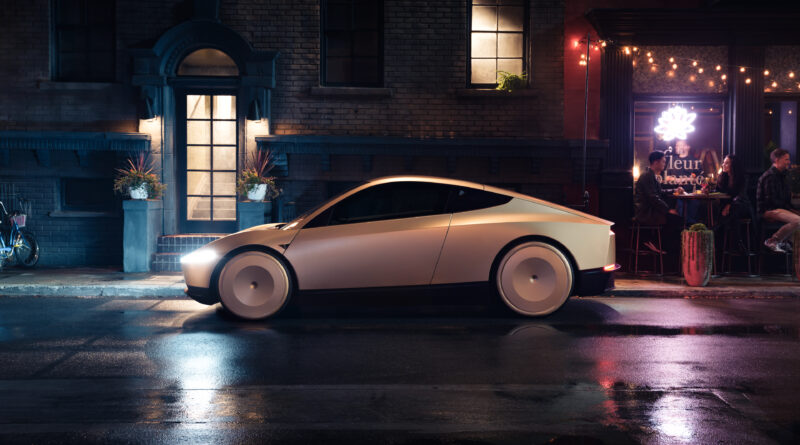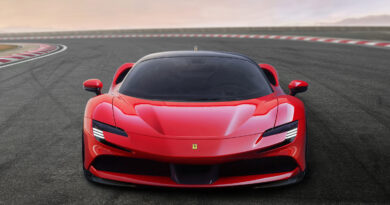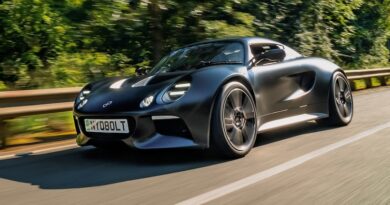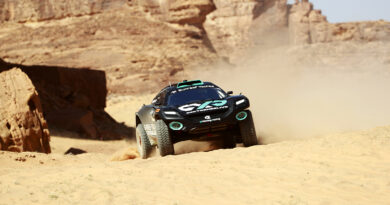Elon Musk excited about being asleep at the wheel as he launches Tesla Cybercab
Tesla has revealed its first concept for the all-new Robotaxi that it is developing in an attempt to bring autonomous cars to the masses when it will be launched in 2027 priced from $US30,000 ($A44,500).
Dubbed the Tesla Cybercab concept, the US brand’s new two-door vision for its autonomous future was unwrapped alongside a larger 20-seat mini-van, called the Robovan, that’s also claimed to be capable of self-driving.
The huge profit-making temptation of the vehicles is that you’d be able to buy one, drive all day and then send it out to work for you as a driverless Uber all night while you put your feet up.
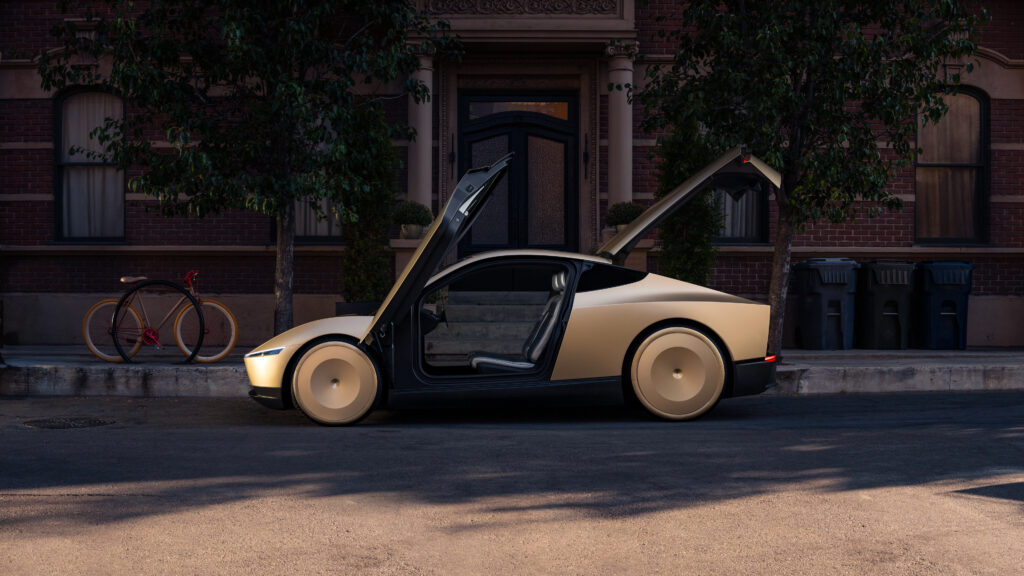
Both concepts do without steering wheels and pedals and are said to harness the power of artificial intelligence, cameras, radars and built-in LiDAR sensors, plus built-in mapping software to help it accurately self-navigate.
You might notice the new concepts also lack charging ports and that’s because they have been developed to be charged wirelessly.
READ MORE: https://evcentral.com.au/teslas-biggest-gamble-ever-musk-bets-the-future-of-electric-vehicle-giant-on-cybercab-and-truly-autonomous-cars-opinion/
Within, the Cybercab carries on Tesla’s tradition of offering a stripped-out minimalist cabin, with only a large central touchscreen, armrest and two cupholders.
The coupe concept also favours just two seats and a large boot for luggage.
Other more unusual features are the lack of a rear screen, which is thought will slash production costs.
Following its unwrapping, Tesla CEO Elon Musk said the Cybercab would enter production and begin selling the new driverless coupe in 2027 with prices set to kick off from $US30,000 ($A44,500).
No timeline was given for the new minivan and Musk did not announce which market either car would be sold in first.
As well as some private users, Musk said he hopes that the Cybercab will prove a success with ride-hail services like Uber and Bolt and that owners would be able to rent out their car when not using it via an app.
Musk announced that the Cybercab has been in the works for years now, but many have pointed out that its arrival comes four years after the outspoken CEO had claimed he would have launched a fleet of robotaxis.
Rivals Waymo, Cruise and Deeproute.ai are all already thought to be years ahead of Tesla with live real-world testing in cities around the world using adapted vehicles.
Full technical details of the Cybercab and Robovan have yet to be released but it’s been widely rumoured that the smaller car sits on the same new architecture that was originally developed for the base Model 2 EV before that car was dropped to fast-track the driverless car program.
During the Cybercab and Robovan presentation Tesla’s boss also announced that the car-maker’s flagship ‘unsupervised’ FSD (full self-driving) technology would be certified for use in both the Tesla Model 3 and Model Y by 2025.
It’s not been clarified what level of autonomous driving will be certified but it’s thought that the car-maker is hatching plans to roll-out its Level 3 driverless tech that will see the both the mid-size sedan and SUV drive without need for supervision in certain geofenced areas, like highways.
Commenting on the new reveals Tesla’s Elon Musk said: “We’ll move from supervised Full Self-Driving to unsupervised Full Self-Driving, where you can fall asleep and wake up at your destination.
“It’s going to be a glorious future.”

